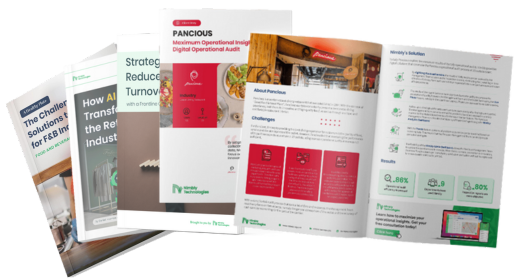

Companies often incorporate mystery shopping into their research, but who exactly is a mystery shopper? What role can they play with their insights?
In business, there are the top line and bottom line. As one of the most important figures on an organization's income statement, the top line is the gross revenues, while the bottom line refers to the net income. Companies can improve their bottom line by many things, and implementing mystery shopping is one of them.
The mystery shopping concept is still under the radar despite its potential in helping companies better on their product or service improvement. The people doing mystery shopping are called mystery shoppers.
The general definition of a mystery shopper refers to a paid consumer "employed" to shop in stores and gather necessary data. Although a third party is more likely to recruit, it's also possible for a company or store to hire them as well.
Having a growing quantity of customers is essential, but it's actually more important to keep your current customers returning and staying with you. Here's why you should consider mystery shopping.
Mystery shoppers work with a specific mindset based on how they're briefed. There's no personal attachment to what they're researching. With their honest evaluation, companies can form the end-result more objectively—hence put broader appeal, if possible.
A mystery shopper is commonly employed from the same demographic (e.g., locality, age group, etc.) target of a store they visit. Their understanding of such allows their evaluation to be as specific and objective as possible.
Mystery shoppers' reviews include any happenings at the store that may be unnoticeable in a crowd. These insights can be used to improve the situations immediately.
Their evaluation helps you enhance anywhere it can in your store or company. Their valuable objective input and insightful information come from looking at a situation objectively and finding out any unpolished areas.
Also Read: Increase Operating Profit Margin and Improve Your Business Profitability

In a way, mystery shopping can be regarded as a means to determine the customer service level and performance. What are some benefits of hiring a mystery shopper?
A mystery shopper hired from outside the company won't know anything about your business processes. Hence, their honest insights can help zero in on particular areas you might want to assess: product quality, customer satisfaction, shopping experience, etc.
Some questions mystery shoppers should answer:
Also Read: Automize these 4 tasks to boost employee productivity [Infographic]
Companies expect their frontline staff to uphold particular brand representation. Those brand values might or might not be too visible, but it's where mystery shoppers notice and make their note.
Stores have their own systems, SOP, protocols, etc. to keep things in order. Although mystery shoppers aren't exposed in-depth on these, what they witness on the surface is similarly valuable. Staff's knowledge and responses to those systems can also affect their evaluation.
If you've also been following your competitors' activities, then you'll definitely find a stark contrast about how each business runs things. Identify your strengths and learn from their mistakes.
Some questions mystery shoppers should answer:

As an unconventional audit software system, Nimbly is humbly effective in providing digital checklists and issue trackers. Companies relying on real-time data and insights will be benefited from Nimbly's Dashboard Analytics. Not only is Nimbly efficiently recording mystery shoppers' data, but it'll also help management to compile data and monitor KPIs—hence eliminating manual weekly reports and mountains of paperwork.

All in all, hiring a mystery shopper can be an excellent investment for your brand improvement, considering that they're always reliable in giving objective input and insights. They also have experience and knowledge based on where they come from, thus ensuring you have the most reliable data on your hand.
Nimbly Technologies is a mobile solution that digitizes operations, improves efficiency, and generates cost savings by providing companies' management with data-driven insights from field operations remotely and in real-time.

